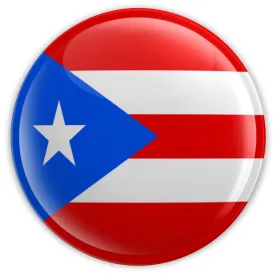On May 3, 2017, the Financial Oversight and Management Board for Puerto Rico (the “Oversight Board”), acting on behalf of the cash-strapped Commonwealth of Puerto Rico (the “Commonwealth”), filed for bankruptcy protection in the District Court for the District of Puerto Rico. The Commonwealth’s Title III Petition for Covered Territory or Covered Instrumentality (the “Petition”) was filed in accordance with Title III of the Puerto Rico Oversight, Management, and Economic Stability Act (“PROMESA”), codified at 48 U.S.C. § 2161, et seq. The Petition follows unsuccessful negotiations with bondholders regarding the Commonwealth’s massive debt load that ended with a series of legal actions filed against the Commonwealth and others initiated the moment the legal stay provisions of PROMESA expired on May 1, 2017. The Commonwealth’s petition marks the first time in history that a United States territory has commenced insolvency proceedings, and the first Title III proceeding under PROMESA.
Title III Adjustment of Debts
Because the United States Bankruptcy Code does not apply to territories such as Puerto Rico, Congress enacted PROMESA to provide covered territories with methods for achieving “fiscal responsibility” and, if necessary, an avenue to pursue insolvency proceedings in the United States District Court. In crafting the framework of a Title III proceeding, Congress expressly incorporated certain sections of the Bankruptcy Code and created a quasi-Chapter 9, which governs the adjustment of debts for United States municipalities, framework that will govern the Commonwealth’s petition. For example, the Commonwealth will be able to avail itself of the Bankruptcy Code’s automatic stay under 11 U.S.C. § 362. See 48 U.S.C. § 2161 (a). Title III of PROMESA also grants the Commonwealth certain benefits not available to a traditional Chapter 9 municipal debtor. For example, it prohibits any motion to dismiss the Commonwealth’s Title III petition for the first 120 days after filing. See 48 U.S.C. § 2164(b).
The Commonwealth’s Petition
Unlike a typical bankruptcy, after filing in the District Court for the District of Puerto Rico, PROMESA requires the Chief Justice of the United States Supreme Court to appoint the district court that will oversee the Title III proceeding. 48 U.S.C. § 2168.
The Oversight Board's filed the petition on behalf of the Commonwealth, accompanied by the Oversight Boards’ restructuring certification as required under PROMESA. See 48 U.S.C. §§ 2162 and 2146. The certification includes assertions that: (a) the Commonwealth made good-faith efforts to reach a consensual restructuring its creditors; (b) a Title III proceeding is necessary to protect citizens of Puerto Rico and is in the best interest of the Commonwealth’s creditors; and (c) a Title III filing should not preclude continued efforts to reach consensual debt restructuring with creditors.
Supplementing the Petition is a “Statement of Oversight Board In Connection with PROMESA Title III Petition” (the “Statement”). The Statement identifies factors that led to the Title III filing, including: Puerto Rico’s severe economic decline; the elimination of $850 million in Affordable Care Act funds in Fiscal Year 2018; the exhaustion of all public pension funding with a predicted shortfall of approximately $1.5 billion per year; and the Commonwealth’s inability to pay debt service, fund its operations, and access capital markets. Other factors include the Commonwealth’s inability to achieve a consensual restructuring under Title VI, an influx of creditor lawsuits following the expiration of the PROMESA stay this week and the Oversight Board’s statement that it can only achieve a restructuring of public pension obligations under Title III.
Charting New Paths
Puerto Rico is entering uncharted territory. This is the first PROMESA Title III filing ever, and there have been relatively few filings under chapter 9 of the Bankruptcy Code—the closest equivalent. The dearth of case law concerning many aspects of a Title III filing, and the resulting uncertainty, will likely result in an exceptional number of procedural challenges and objections—including objections to the validity of the Petition itself. However, given the existing disputes over relative priority of different bonds and collateral issued by various instrumentalities of the Commonwealth, the broad-ranging opinions on the viability of the Commonwealth’s Certified Fiscal Plan, and a rocky coast line of other issues, including underfunded pensions, Title III appears to be the only way for Puerto Rico to avoid a shipwreck.



 />i
/>i

